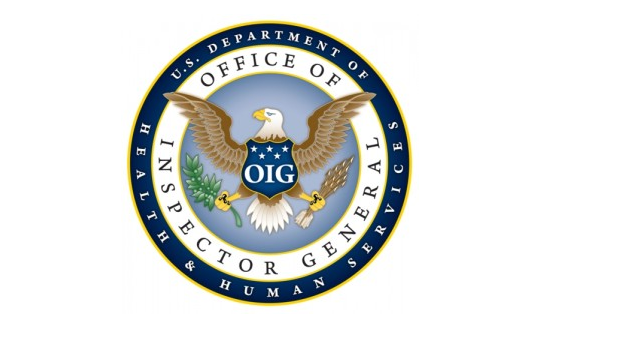By Charlie Hayward
For MarylandReporter.com
Federal auditors told state officials earlier this week that more than $34 million for the care of developmentally-disabled citizens during 2010-2013 had been spent improperly, and the money needs to be refunded.
This latest disclosure indicates the state continues to harbor chronic and widespread deficiencies involving the care for people with disabilities despite “fixes” implemented over 10 years or longer. While recent criticisms mainly address administrative deficiencies, numerous programmatic stresses involving quality, scope, and sufficiency of care and fairness of caregivers’ compensation appear to exist as well.
Some of the administrative deficiencies from the recent past include:
- A previous Federal audit (2013) said the state must repay $21 million because the Developmental Disabilities Administration (DDA) “…lacked internal controls to ensure that unallowable costs were not included in claims for provider per diem payments….” associated with the “Community Pathways” program of care for the disabled. The state agreed to a refund, but the current status is unclear.
- Another 2013 audit by the state’s Office of Legislative Auditor lambasted DDA for a laundry list of major problems affecting care for the disabled going back more than 10 years. The state is trying to resolve the deficiencies.
- Dr. Joshua Sharfstein, former head of the health department, DDA’s parent agency, was forced to admit in 2012 massive accounting problems impairing care for the disabled. This problem was at least superficially corrected.
The state’s defense for the latest problems? A proofreading error!
This defense is not only an admission of carelessness by state bureaucrats, but raises important questions about skimpy due diligence the state agencies, DDA and its parent Department of Health and Mental Hygiene (DHMH), employed in the administration of the program. And it raises doubt about the cultures within these state entities.
In a nutshell, the state wrote the rules describing eligibility of costs to care for people enrolled in the “Community Pathways” program that were to be reimbursed by the U.S. Department of Health and Human Services (HHS) and, after HHS approved those rules, the state ignored them and applied different rules.
State officials should be embarrassed and deeply concerned because at least two “internal controls” broke down and nobody detected the problems. First, DHMH wrote rules that were more restrictive than necessary, and nobody detected the error. And second, DHMH committed itself to one set of rules in a binding agreement with the federal government, while at the same time it promulgated conflicting COMAR regulations. (DHMH writes COMAR regulations to be used by the myriad care providers to assure uniformity.) Nobody saw the disconnect.
This is not a simple case of proofreading error. In fact, blaming the problem on simple oversight could be an insidious excuse designed to enable the state to avoid circumspection, and correct the underlying problems. The true cause was carelessness that needs to be corrected for the sake of administering the program with integrity.
Specifically, DHMH needs to resolve these problems:
- Who wrote the erroneous rules?
- Why would someone write rules that might restrict care?
- Why didn’t somebody detect the fact that key language in the federal agreement contradicted the state’s intent?
- Who was responsible for assuring COMAR rules were compatible with rules in the Federal agreement?
These are the true questions the state/DHMH must answer, and then act to ameliorate the problems.
On a separate track, DHMH needs to resolve the audit recommendation that the state owes HHS $34 million. Fortunately, the state didn’t violate any laws or federal regulations. Moreover the state appears to have a variety of strong legal arguments– such as quantum meruit a reasonable sum of money to be paid for services rendered when the amount due is not stipulated in a contract — that should decisively support its position that Maryland owes HHS no refund.
But the fact that the auditor’s position can be labeled as “form-over-substance” doesn’t absolve the state from correcting the major internal control breakdowns affecting the integrity of the “Community Pathways” program administration.
These breakdowns can put state taxpayers at high risk of paying for care that federal law requires HHS to finance.




Laughable. The CFO was fired for discovering the accounting irregularities they needed to keep hidden in order to keep their lucrative government jobs and political careers. This is no error, just one among the many on the list of money being funneled to friends, right under taxpayers’ noses.
Isn’t this the same department that returned millions of federal aid in error awhile back? And the same department that pleaded we didn’t have enough funds to help the developmentally disabled so some of the hike in alcohol taxes were funneled to help solve problems? Heads should ROLL in this latest screw up. Proofreading error huh? Is that latest lamest excuse in government? Guess they figure it worked with SCOTUS so for sure it will work here.
These “creatures” are “un-fireable” and unaccountable, as are those in charge of them…
State and Federal funds, $80 million and counting taken back in this fallout. Governor Hogan, Lt. Governor Rutherford, and Secretary Mitchell need to step up and deliver PINK SLIPS to every remotely associated “un-fireable” DHMH finance department or DDA manager to hold them accountable for being crooked and/or incompetent. Those who knew and were afraid to speak up should be fired too. After all, they were paid to safeguard our tax dollars.
Make Anthony Brown repay the money.
And so should Marty O’Malicious and all of the bureaucrats of DHMH…
BTW, I’m available to take a “proof-reading” job to help these “poor folks” out…
I can read English from the 1500’s to current English, as well, as “bureaucratese”…